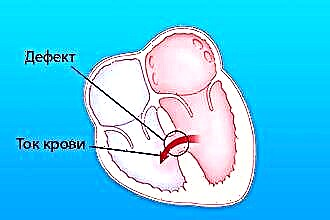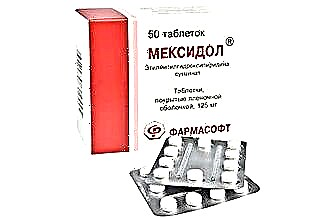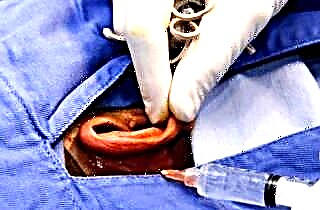 It is necessary to distinguish between fungal and bacterial sore throat, since these diseases require radically different treatment.
It is necessary to distinguish between fungal and bacterial sore throat, since these diseases require radically different treatment.
Antibiotics, indispensable in the treatment of streptococcal sore throat, significantly aggravate the course of a fungal infection of the tonsils. Fortunately, tonsillomycosis has some characteristic manifestations that clearly distinguish it from other types of tonsillitis. We will tell you what fungal sore throat is - symptoms and treatment of candidal disease, its features and prevention in adults and children.
Causes and pathogens
The infectious agent of fungal sore throat is a yeast-like microscopic fungus of the genus Candida. This fungus belongs to conditionally pathogenic microorganisms inhabiting a small number of mucous membranes and human skin. They are representatives of normal microflora and do not cause any disturbance in people with a normally functioning immune system.
A decrease in immunity, as well as an imbalance in the ratio of bacteria and microflora fungi, can lead to candidiasis.
The growth and reproduction of fungi constantly restrain the bacteria of the microflora. When there are too few bacteria, candida proliferation gets out of control. First of all, the mucous membranes (oral cavity, respiratory tract, genitals) are affected. When Candida cells accumulate, they form characteristic curdled lumps. Further, other symptoms characteristic of mycosis develop - dryness, burning, etc.
Thus, the main cause of tonsillocandidiasis is dysbiosis. What can cause this condition? It is known that candidal angina can be triggered by the following factors:
- the use of potent antibiotics;
- improper use of antibiotics - violation of dosage, regularity of use, etc.;
- long-term use of strong antiseptics for the oral cavity;
- taking glucocorticosteroid drugs;
- unbalanced diet, fasting;
- decreased immunity.
If the cause of candidiasis is the use of drugs, it is necessary to visit the doctor again to review the prescribed treatment.
Features of the clinical picture
In what cases should the presence of fungal sore throat be suspected? This disease has very characteristic symptoms:
- a loose, loosely adherent white cheesy bloom, it can be film-like or punctate;
- plaque is found not only on the tonsils, but also on the pharynx, palate, cheeks;
- sore throat;
- pain when swallowing is moderate or absent;
- redness of the tonsils;
- swelling of the tonsils is absent or mild;
- dry mouth;
- violation of the sense of taste of food;
- bad breath;
- the general condition of the patient is satisfactory - the temperature is usually normal (rarely exceeds 37C), the head does not hurt, digestion is not disturbed.
Thus, with fungal sore throat, the patient feels generally satisfactory; the only thing that worries him is the formation of a lumpy plaque in the mouth and the associated discomfort.
Despite the fact that fungal tonsillitis slightly disrupts well-being, it must be treated without delay, since the disease progresses over time.
The main approaches in the treatment of candidiasis
Treatment for fungal tonsillitis differs significantly from other types of tonsillitis. First, in order to increase the effectiveness of therapeutic measures, it is necessary to find out what exactly caused a significant decrease in the patient's immunity, and, if possible, minimize the influence of this factor. For example, if tonsillocandidiasis is caused by taking antibiotics, treatment will be ineffective until the patient stops taking antibacterial drugs. In some cases, it makes sense to temporarily stop taking the antibiotic and then start over. In others, it is reasonable to finish the started course of the antibiotic to the end, and only after that start treating candidiasis.
In any case, it is very difficult, and sometimes pointless, to treat fungal sore throat while taking an antibiotic at the same time.
How to treat tonsil candidiasis if you have to take an antibiotic? In this case, the patient is prescribed antifungal drugs - "Nistidine", "Fluconazole", etc. These drugs are allowed to be taken simultaneously with antibiotics.
In general, treatment for fungal sore throat includes the following therapeutic procedures:
- gargling with solutions of antifungal agents (such as nystatin, levorin, quinosole);
- therapy should also include taking systemic antimycotics (Intraconazole, Miramistin, Hexoral, Nistidine, Fluconazole);
- irrigation or lubrication of the tonsils with antiseptic agents with antifungal effect (quinosol, silver nitrate solution 5%, Lugol's solution);
- vitamin therapy;
- physiotherapy treatments (eg, UV throat irradiation).
If fungal sore throat does not respond to the indicated treatment, the doctor may prescribe immunomodulatory drugs, for example, tincture of echinacea, etc. It is not recommended to take immunomodulators without appropriate indications.
Home treatments for tonsillomycosis
Fungal sore throat is one of those diseases that can be cured at home. Local treatment is paramount - gargling, lubricating the tonsils, etc.
The most effective and recognized home treatments for fungal sore throat are:
- Gargle with a mild baking soda solution (1 teaspoon per glass of water). Soda solution is as effective as pharmaceutical gargles. An alkaline environment is extremely unfavorable for fungi of the genus Candida.
- Tea tree oil is used for inhalation and for rinsing the mouth. This remedy is a recognized antiseptic that has a depressing effect on the fungus.
- An infusion of Kalanchoe, chamomile, pine buds is also used as a rinse solution. Pour boiling water over dry or fresh plants and leave for about 2 hours. After that, the solution is ready for use. Important: every day you need to prepare a fresh infusion.
- Garlic is an antiseptic and immunostimulating plant. To prevent and relieve symptoms of candidiasis, it is recommended to chew a clove of garlic 2-3 times a day.

Since candidiasis is a sign of weakening of the immune system, an important role in home treatment is given to the improvement of the body. It is necessary to include yoghurts, kefir and other fermented milk products in the patient's diet. Preference should be given to perishable products (they have undergone less heat treatment and retained the maximum useful properties). It's also important to eat plenty of fresh fruits and vegetables.
During treatment, the patient should pay special attention to oral hygiene. You shouldn't stop brushing your teeth twice a day, use mouthwash and floss.
After recovery, it is necessary to replace the toothbrush so as not to provoke a relapse of the disease.
Prevention of candidal sore throat
How to prevent the development of such an unpleasant disease as fungal sore throat? We recommend that you familiarize yourself with preventive measures that reduce the risk of developing fungal infections:
- observe the rules of personal hygiene - do not use other people's lipsticks, toothbrushes, towels;
- pay attention to nutrition - eat enough protein, fats and carbohydrates, regularly eat fresh fruits and vegetables, as well as lactic acid products;
- treat dysbiosis in time;
- adhere to the prescribed doses, frequency and duration of antibacterial drugs;
- to increase the activity of the immune system, it is recommended to go in for sports, temper the body; immunostimulants are required in exceptional cases, you should not use them without a doctor's prescription.
Fungal lesions of the tonsils respond well to treatment - already on 3-4 days of taking medications, the patient notices a significant improvement. However, a characteristic feature of candidiasis is its tendency to relapse - after recovery, the symptoms of the disease may return with a slight decrease in immunity.
Fungal sore throat can reappear after stress, acute respiratory viral infections, taking certain medications, during pregnancy, etc.
In order to prevent the return of candidal sore throat, you should adhere to the doctor's prescriptions and follow preventive measures.




